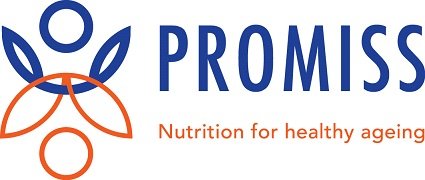Over 20 million older citizens are at risk of protein malnutrition in Europe - the consequences on health are serious and often irreversible.
The Horizon2020 PROMISS project tackles malnutrition with a specific focus on protein-energy malnutrition. PROMISS makes use of international cohort study data to understand the relationships between food intake, food characteristics, physical activity, the oral and gut microbiota, and poor appetite, malnutrition and poor health among older adults. Preferences and attitudes of older persons about food intake and physical activity are also considered.
PROMISS’ research brings findings relevant for the battle against malnutrition that highlight the importance of a sufficient protein intake when aging.
Protein intake and its sources
Of those aged 85 years and older, 28% consumed less than the recommended protein intake target (at least 0.8 g of protein per kg of adjusted body weight per day). This group ate less meat, more cereals and drank more non-alcoholic beverages than those who had an adequate protein intake. (Mendonҫa et al. 2017)

Protein intake and physical activity
Lower protein intake is associated with lower muscle strength and physical performance in late life, and a combination of adequate protein intake and physical activity may be necessary to reduce the loss of muscle strength in the very old. (Granic et al. 2017)
Protein intake and other associations
Higher protein intake, in particular 1.0 g/kg of adjusted body weight/day or more, was associated with better disability trajectories in the oldest adults. These findings will help developing new dietary strategies to support active and healthy ageing. (Mendonca et al. 2019)
In the context of the project, the Pro55+ Protein Screener was developed and can be used as a research tool to validly screen community-dwelling older adults for a lower protein intake. The online-questionnaire can be found in English, Dutch and Finnish here. (Wijnhoven et al. 2018)
See here for an overview of all PROMISS research findings. All peer-reviewed scientific publications produced in the context of the project can be accessed here.
References
- Granic, A., Mendonca, N., Sayer, A. A., Hill, T. R., Davies, K., Adamson, A., . . . Jagger, C. (2017). Low protein intake, muscle strength and physical performance in the very old: The Newcastle 85+ Study. Clin Nutr. doi:10.1016/j.clnu.2017.11.005
- Mendonca, N., Granic, A., Mathers, J. C., Hill, T. R., Siervo, M., Adamson, A. J., & Jagger, C. (2017). Prevalence and determinants of low protein intake in very old adults: insights from the Newcastle 85+ Study. Eur J Nutr. doi:10.1007/s00394-017-1537-5
- Mendonca, N., Granic, A. , Hill, T. R., Siervo, Mathers, J. C., Adamson, A. J., & Jagger, C. (2019). Protein Intake and Disability Trajectories in Very Old Adults: The Newcastle 85+ Study. J Am Geriatr Soc, 67:50–56. doi: 10.1111/jgs.15592
- Wijnhoven, H. A. H., Elstgeest, L. E. M., de Vet, H. C. W., Nicolaou, M., Snijder, M. B., & Visser, M. (2018). Development and validation of a short food questionnaire to screen for low protein intake in community-dwelling older adults: The Protein Screener 55+ (Pro55+). PLoS One, 13(5), e0196406. doi:10.1371/journal.pone.0196406
PROMISS contact details
PROMISS PO – Project Office
Website
LinkedIn
Twitter
Facebook
This project is funded from the European Union’s Horizon 2020 Research and Innovation Programme, Grant n° 678732. The content of the article only reflects the project’s view. The European Commission is not responsible for any use that may be made of the information it contains.
Image: iStock-shironosov

